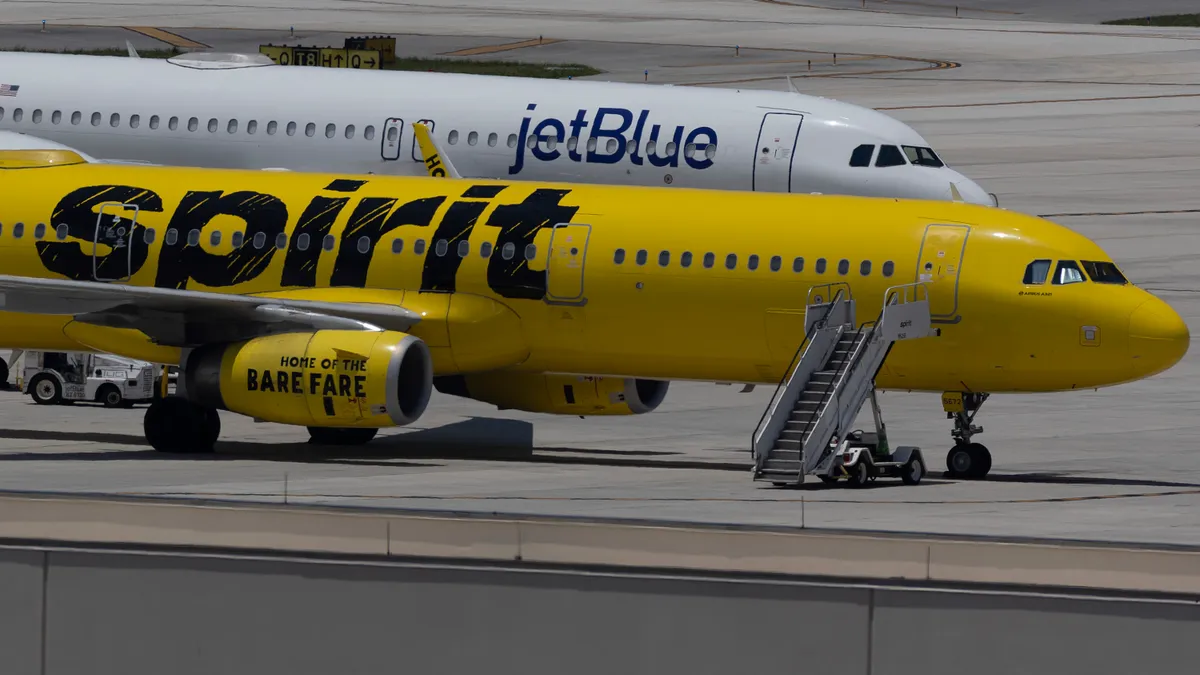The claim that JetBlue plans to raise fares by as much as 40% in some markets should it complete its acquisition of ultra-low cost carrier Spirit Airlines isn’t based on full information, the airline says in a statement responding to news reports of its plans.
The company is mired in an antitrust lawsuit by the Department of Justice and a civil case filed last year by a group of consumers in California and later moved to Massachusetts. Both claim the $3.8 billion deal will lead to higher prices and the inability to fly at all for people who rely on ultra-low cost carriers.
The company has said the acquisition will help it keep prices low by providing a competitive alternative to big airlines like American, United, Delta and Southwest. But in a widely covered August 23 report by Law360, information gathered in discovery and included by plaintiff’s counsel in a court filing in the consumer case indicated prices would in fact go up.
“JetBlue plans to increase fares on aircraft it acquires from Spirit by at least 24%,” the filing said.
What’s more, JetBlue believes that number “is a conservative estimate, and that fare increases may be as high as 40%. … Thus, there is direct evidence in the form of party admissions that the merger will have anticompetitive effects.”
The estimated price hikes were redacted, but the Law360 reporter who covered the filing, Bryan Koenig, said the redactions were viewable when text from the filing was copied and pasted into a new document.
The material is no longer available, but Koenig confirmed the contents to USA TODAY.
In a statement, JetBlue didn’t deny the price hikes but said the focus on the redacted information misrepresents its plans.
"Taken out of context, [the information] creates a completely inaccurate picture of the facts," Derek Dombrowski, a spokesperson for JetBlue, told USA TODAY. "We are confident that our merger with Spirit will give a much-needed boost to airline competition in the U.S. and result in more low fares and higher-quality service.”
Move for dismissal
JetBlue and Spirit have moved to dismiss the consumer lawsuit against them in summary judgment on the grounds the plaintiffs don’t have standing.
“As Plaintiffs only seek an injunction of an event that has yet to occur, Plaintiffs have not suffered any injury,” the airlines say. “Rather, they say they will be injured, but rely solely on vague and speculative harms based on two general facts: (1) “[e]ach Plaintiff is an air passenger”; and (2) “some [Plaintiffs] are travel agents.”
The airlines also said the plaintiffs, many of them current or former travel agents, have made it a practice to file lawsuits seeking damages whenever the federal government has an airliner merger in its sights.
“Plaintiffs have a decades-long history of filing suits to enjoin mergers in the airline industry and others,” the airlines said. “Not once have they prevailed in enjoining an airline merger, but they have accepted monetary settlements. For Plaintiffs, this case is fundamentally about money.”
The trial for the DOJ case against the merger is expected to be heard in October.











